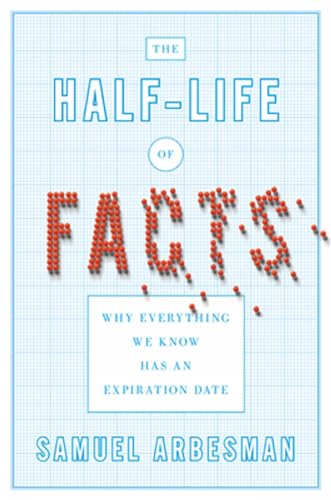“Since scientific knowledge is still growing by a factor of ten every 50 years, it should not be surprising that lots of facts people learned in school and universities have been overturned and are now out of date,” writes Ronald Bailey in his review of Samuel Arbesman’s The Half-life of Facts.
